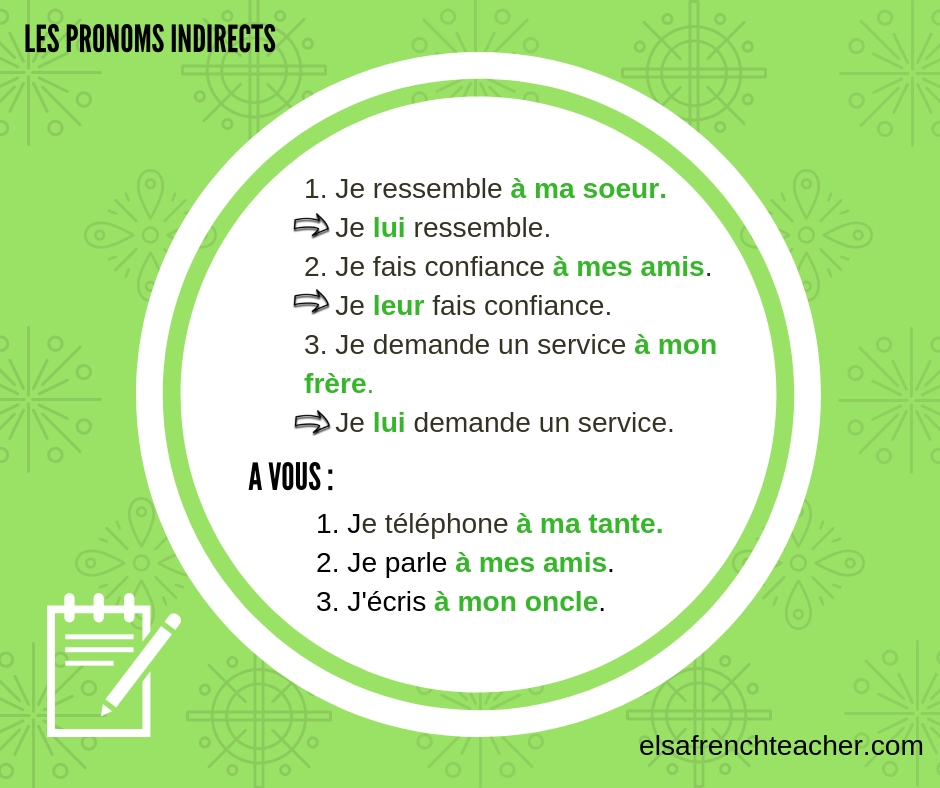
Silent letters in French
Silent letters in French
I am sure you have already noticed that, in French, we don’t write the same way we speak.
This is due to all the silent letters in French words.
Let’s see what these letters are.
At the beginning or inside a word
The letter H
We never pronounce the letter H in French, except when it’s associated with c, then it transforms in the sound “ch”.
However, we have two kinds of H: the “strong H” and the “soft H”. The soft H accepts a “liaison”, the strong one doesn’t (I’ll write an article very soon on that subject).
Neither of them is pronounced.
The letter U
Don’t pronounce it after G or Q :
Un quartier [kartie]
Une guerre [Ger]
And also, be careful: OU is a special sound different from U.
The letter N
Don’t pronounce it when it’s associated with another letter to create a nasal sound:
EN/AN/IN/ON/OM etc.
( > Watch my video about nasal sounds in French.)
The letter I
Don’t pronounce it after O because OI is pronounced WA.
At the end of a word
The letter E
Don’t pronounce it at the end of a word except if there is an accent on top of it: é
(Watch my video about that subject if you want more details about the pronunciation of E)
The letter S
We use it a lot at the end of the words to indicate the plural. Don’t pronounce it.
Also, some words end with S but are not plural. You still don’t pronounce the final S.
Examples: autrefois, un avis, un bras, une brebis, un colis, un corps, un dos, un héros, jamais, un jus, un mois, un poids, un refus, le repos, une souris, un tapis, le temps, volontiers, etc.
( formerly, an opinion, an arm, a sheep, a parcel, a body, a back, a hero, never, a juice, a month, a weight, a refusal, rest, a mouse, a carpet, time, willingly)
And finally, don’t pronounce it at the end of the verbs:
For example: tu parles, nous parlons, je parlais, je parlerais.
(you speak, we speak, I spoke, I would spoke.)
The letter X
Don’t pronounce it at the end.
It’s quite frequent, we can find it:
- At the end of these nouns: un choix, une croix, un époux, le houx, une noix, la paix, une perdrix, un prix, une toux, une voix.
(a choice, a cross, a husband, a holly, a walnut, peace, a partridge, a prize, a cough, a voice.) - At the end of some plural : des choux, des bijoux, des cailloux, des genoux, des poux, des joujoux, des hiboux.
(cabbages, jewels, pebbles, knees, lice, toys, owls.) - At the end of many adjectives : délicieux, joyeux, heureux, merveilleux, doux, jaloux, roux etc.
(delicious, happy, happy, wonderful, soft, jealous, red hair etc.) - At the end of some verbs: je peux, tu peux, je veux, tu veux
(I can, you can, I want, you want).
The letter T
It’s most of the time mute at the end of a verb:
- Examples 1 (before a vowel): un achat, le climat, un chat, un habit, un lit, un récit, étroit, un toit, un bruit, un enduit, minuit, un capot, un escargot, un matelot, un robot, souvent, un point, un bout, etc
(a purchase, the climate, a cat, a coat, a bed, a story, narrow, a roof, a noise, a coating, midnight, a hood, a snail, a sailor, a robot, often, a point, one end) - Examples 2 (before an R) : l’art, un départ, un concert, un désert, un dessert, un confort, un effort, un port, un tort, court etc.
(art, a departure, a concert, a desert, a dessert, a comfort, an effort, a port, a wrongdoing, short etc.) - Examples 3 (we don’t pronounce the C and the T): aspect, respect, irrespect, suspect.
(appearance, respect, disrespect, suspect) - Examples 4 (at the end of the verbs) : il finit, il finissait, il finirait, ils finiraient etc.
(he finishes, I finished, he would finish, they would finish)
The letter D
We find it at the end of some words :
- -aud : chaud, un crapaud, costaud, etc.
(hot, a toad, beefy) - -and: un allemand, un gland, grand, un goéland, un gourmand, normand, etc.
(a German, an acorn, a big, a gull, a gourmand, a Norman, etc.) - -ard: un brassard, un boulevard, un brouillard, un canard, un dossard, un hasard, un homard, un léopard, un retard, etc.
(an armband, a boulevard, a fog, a duck, a bib, a chance, a lobster, a leopard, a delay, etc.) - -ond : un bond, un fond, un plafond, etc.
(a leap, a bottom, a ceiling, etc .) - -ord : un accord, un bord, le nord, un record, etc.
(an agreement, an edge, the north, a record) - -ourd : lourd, sourd.
(heavy: heavy, deaf.)
The letter G
We don’t pronounce it at the end.
For example: un bourg, un faubourg, un coing, un étang, un hareng, long, un poing, sang,
(A small village, a suburb, a quince, a pond, a herring, long, a fist, blood).
Except in words ending with ING, then we pronounce it like in English:
Le shopping, le jogging, le footing, le dressing, le planning, le dancing, le crowdfunding, le zapping, le shooting, le rafting etc.
> We like words ending with ING, we find them very cool ?
The letter P
We don’t pronounce it at the end.
For example: prompt, sept, beaucoup, un champ, un coup, un drap, un galop, un loup, un sirop, trop.
(prompt, seven, many, a field, a blow, a sheet, a gallop, a wolf, a syrup, too.)
Neither at the end of some verbs: il interrompt, il corrompt, il rompt.
(he interrupts, he corrupts, he breaks.)
Voilà! I know that’s a lot ?
French is a very nostalgic and conservative language in the sense that it has kept, throughout its history, many letters that were no longer used.




















